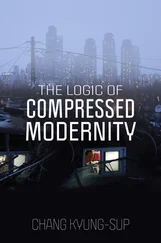It began as a mostly dull and enervating journey for Sylvie and her parents both: the incessant heat and airlessness of the third-class train cars rolling slowly eastward along the Côte d’Azur after the draining ferry crossing from North Africa to Spain, all of them suffering stomach distress and motion sickness, and when they trekked across the northern lowlands of Italy, the biting gnats and flies. To save the little money they had (money was a worldly curse), they did not break up the trip by disembarking in Nice or Milan to restore themselves in a decent hotel, but rather used the occasional two-hour waits between trains to find a rooming house near the station that would allow them to bathe for a few francs or lire, and for her father to shave. They were gypsies of mercy, her mother would remind her, and didn’t require a proper bed.
So they slept on the trains, eating butter sandwiches bought from hawkers (her mother would toss the slick cured ham from the panini to the crows, for the Binets were the rare vegetarians, whenever they could help it), reading the Red Cross founder’s account of the battle and aftermath to each other aloud, to remind them of their purpose. They still packed a Bible among their things but read it less and less, returning instead to their Marx and Zola and old pamphlets of Debs, for already by then they had become missionaries of action, a Socialist streak rising in them, which would ultimately draw them to northern China. When they finally reached Mantova her father hired a car to drive them up to Solferino, but it broke down climbing the hill to the village and they had to go the rest of way on foot in the already burning late-morning sun, her father and the driver each carrying two pieces of luggage, her mother’s skirt as soiled as a charwoman’s as she lost her footing on the dirt road, though of course it did not concern her. For they were here, very close now; they were on the last part of the march.
The church was built on a ridge that rose up in the heart of the village. From the albergo they could easily see it standing majestically up at the end of a rising allée of young cypress trees. They checked into their room and to Sylvie’s surprise her father announced that instead of seeing it right away they should close the curtains and lie down for a few hours, that they were here now and should rest and rejuvenate. Of course they all knew that they had missed the commemoration ceremony by a day, having been delayed at length, first in Paris and then at the French-Italian border.
But it was a most welcome sleep, even in the lumpy, malodorous bed, which after the hard, cracked-leather seats of the trains seemed to Sylvie a lair of pure goose down. When her parents woke her five hours later it seemed as if she had slumbered for a week, and could have slumbered on for another. But their hunger overwhelmed them. The innkeeper’s wife kindly fixed them an early supper of fried zucchini flowers and a pasta, its creamy egg sauce with peas so rich and satisfying they ate even all the bits of salty pancetta, which none of them mentioned. Afterward the innkeeper opened the one-room “museum of battle” across the road for them, which was mostly just a packed storeroom. It was full of bayonets and muskets and cannonballs and ornate, brightly colored uniforms with tufted headgear and avian epaulets pinned up on the walls, some of them rent and torn and blotted black with dried blood. There were a dozen framed maps and the innkeeper offered them a lengthy disquisition (translated, as he went, by her father) on the various arrays of the Austrian and French forces, a timeline of the early skirmishes and major advances, and the location of the most brutal battles, many of which were fought on and around this very foothill. There were so many dead that they were piled up in carts and buried wherever they could be buried, singly and in groups and in mass numbers. After the fighting, many more died of their wounds and were buried in the same fashion, residents of all the neighboring towns laboring to inter them as quickly as they could to ward off disease. It took weeks. The stench was historic. The rats grew to the size of small dogs. By the end, every able-bodied man and woman and strong-enough child had become, of necessity, a gravedigger. Years later, when the church was erected, the bones from the known mass graves were exhumed and cleaned and arrayed inside, transforming it into a sacred reliquary of the dead.
The innkeeper finally led them up the hill to the church. It was nearly six o’clock but still very hot, and although the incline was not exceedingly steep, to Sylvie it seemed a hike up a great mountain. She was lethargic with her fully laden belly, and the radiant heat of the pebbled ground and the battle museum room had sickened her, its smell of iron and moldering linen clinging to her like an iniquitous dust, this promise of doom. Halfway up she felt her mouth water terribly and she vomited at the side of the wide path. Though her mother said they should go back to the albergo , Sylvie told her that they could keep going up. She did not wish to disappoint them. At the top they stood before the church doors, the façade lighted golden by the low sun, its lines plain and almost severe, before stepping inside. The shift from brightness to shade momentarily veiled their vision. Like any church it was hushed and still, but here all breath seemed to pause. And then their sight returned and her mother loudly gasped, gripping her husband’s arm. The innkeeper stood apart from them, saying not a word. Sylvie didn’t understand. She looked up at the white marble altar and plain wooden cross and recognized them to be like any other, but the unusual, lovely filigree of the walls of the chancel drew her forward. And then she heard them, as if she were on the stage peering out at the audience of a macabre opera house, the coally voids of countless eyes speaking to her all at once.
Look at us , they said to her, in a single voice. We were never divine .
SYLVIE FELT THE PANE of the window buzz; it was the rumble of vehicles approaching the front gate. There was a horn blast and then another and when she looked outside she saw her father and Reverend Lum coming out from the dining room, walking across the courtyard as they buttoned up their overcoats. Tom Harris and Mr. Li followed them. The wives peered out from the dining room window, and her mother, on seeing Sylvie across the courtyard in their quarters, motioned for her to stay inside. Sylvie couldn’t see what they could see, as the sleeping quarters were on the same side as the main gate, and when the men disappeared from her view she couldn’t help but step outside herself.
There were two vehicles idling on the other side of the wrought-iron gate, a beat-up black sedan and a covered truck. Reverend Lum was talking to the driver of the sedan, a young soldier in uniform who kept trying to present some papers to him through the bars. Reverend Lum spoke Japanese, and though she couldn’t understand what they were saying it was clear enough that Lum was being stubborn, and even high-handed, shoving the papers back whenever the soldier tried to push them through to him. The soldier was very young and despite his heavy clothing he looked as though he could slip between the black iron bars. It was surprising that he wasn’t getting angry or irritated, which was perhaps an indication of his youth, or else he was cowed because Lum had unbuttoned his coat to show his minister’s garb-a modest number of the Japanese were devout Christians. The soldier soon gave up and went back inside the car with the papers. The car jostled slightly but nothing could be seen as their view through the windshield was obscured by the sun’s reflection. For a moment it even seemed they might back up and drive away. But then an officer emerged from the back of the car with the papers rolled up in his hand, and he gestured with them for Reverend Lum to approach the gate. Sylvie’s father and Harris and Mr. Li stepped forward with him.
Читать дальше











